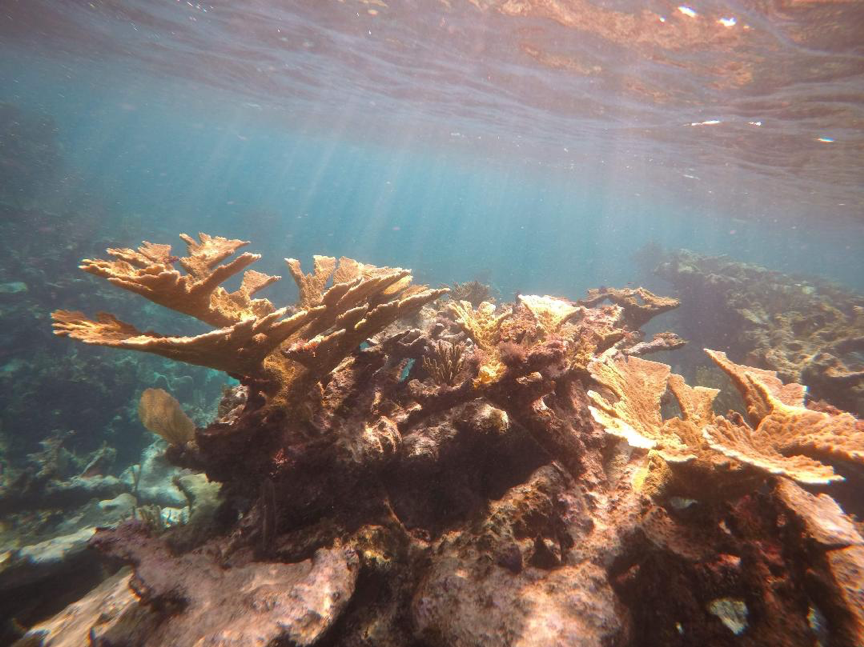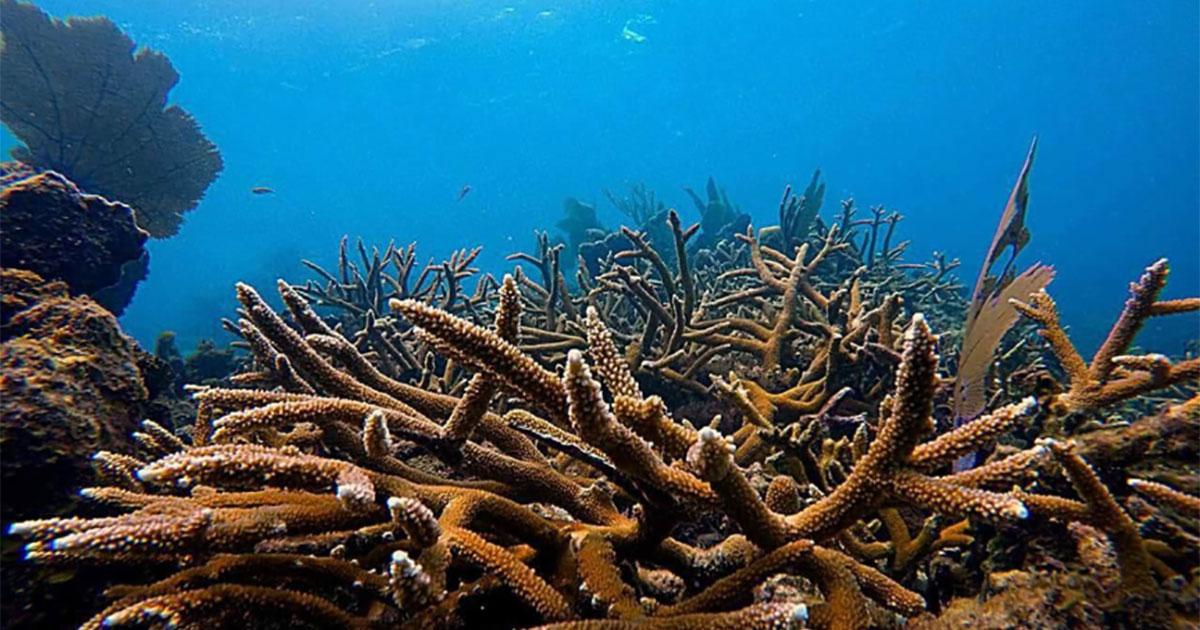The worldwide deterioration of coral reefs, exacerbated by the latest bleaching events, has been particularly evident in the Caribbean, in which more than 80% of corals have vanished from the reefs.
This impelled scientists to increase restoration efforts by growing coral species in underwater nurseries and transplanting them to recuperate reefs. Ultimately, the aim is to promote ecosystem recovery by improving the chances of restoration success. Incorporating key natural ecological processes previously overlooked could be the solution to improve the recovery rates of coral reef ecosystems.
Coral reefs provide a home to an array of species and form spectacular ecosystems, whilst occupying less than 0.1% of the earth’s surface. The calcium carbonate structures that make up these reefs are known as corals. These robust underwater arrangements have, however, swiftly been declining due to the combination of an increase in anthropogenic stressors and intensifying climate change in recent years. Consequently, it is imperative to understand key ecological processes to revert ecosystem declines and thus encourage restoration.
 Photo credits: Prasanna Stephan Wijesinghe
Photo credits: Prasanna Stephan Wijesinghe
Latest research published in the journal Frontiers in Ecology by scientists from UC Santa Barbara and their collaborators have proposed a framework for restoration practitioners. Through the combination of original work and a close examination of restoration literature, researchers have identified key ecological processes: herbivory, competition, predation and nutrient cycling, which could be manipulated to improve coral reef restoration programs. In addition, ‘controlling density, diversity and identity of transplanted corals; site selection; and transplant design to restore positive feedback processes – or to disrupt negative feedback processes – [could] improve restoration success’, explained lead author Mark Ladd.
The three main criteria that practitioners look for when selecting a reef suitable for coral restoration are existing coral cover, available clean substrate and water depth. Ecological processes, however, are discounted during the initial selection phases and are only recognised when considering a site within an elected reef for coral installation. The processes usually accounted for include the best available substrate, avoiding potential benthic competitors and outplanting near herbivores. For instance, ‘Robust herbivore populations can suppress macroalgal cover […] and facilitate the recovery of coral populations after disturbances.’ Although herbivory is acknowledged by practitioners ‘only 2.5 % of studies on coral restoration address the importance of herbivory’, added Ladd. It should, however, be noted that solutions are context dependant.
The adoption of new innovative techniques and the application of current knowledge from the restoration literature will therefore provide scientists with a robust platform toward advancing coral restoration ecology.
‘Without the dual efforts of coral restoration and stress mitigation, corals and coral reefs face a dire future’, announced Ladd.
By Margaux Monfared, Institute of Marine Science, University of Portsmouth
Journal:
Ladd, M. C., Miller, M. W., Hunt, J. H., Sharp, W. C., & Burkepile, D. E. (2018). Harnessing ecological processes to facilitate coral restoration. Frontiers In Ecology And The Environment.



